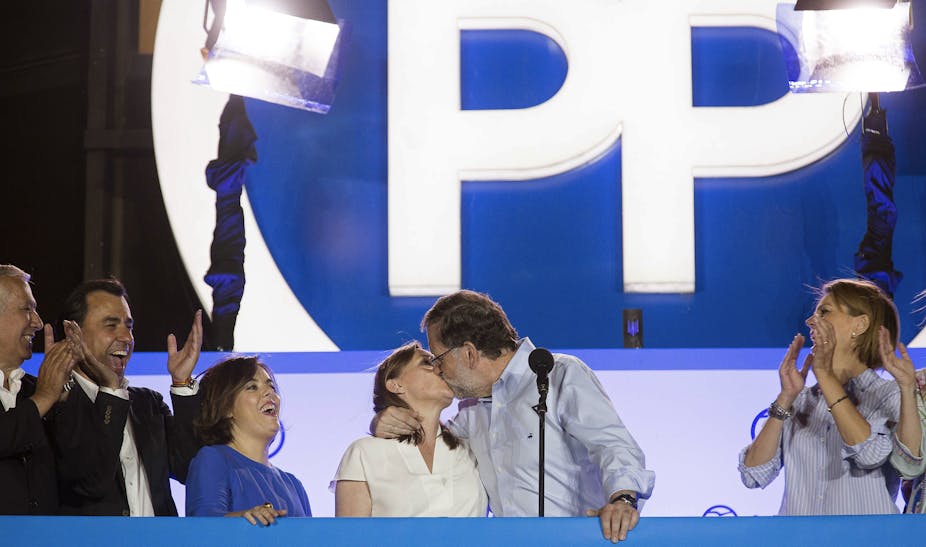Judging by the results of Spain’s second general election in six months, held just three days after the Brexit referendum, Spanish opinion pollsters are as unreliable as their British counterparts.
Although all polls correctly predicted that Mariano Rajoy’s Popular Party (PP) would once again obtain the largest number of seats, almost all of them confidently forecast that leftist insurgents Podemos, this time in alliance with the post-Communist United Left (IU) under the name of Unidos Podemos (UP), would condemn the Socialist PSOE to third place, and thus to irrelevance.
But while the PP was able to improve on its performance last time around by picking up 14 more seats for a total of 137, UP obtained precisely the same number of seats – 71 – as Podemos and IU did separately in the election of six months ago, which failed to yield a government.
In fact, the UP drew more than 1m votes fewer than its two component parties did at the last election, and it failed to live up to predictions that it would overtake the flagging socialists of the PSOE.
The other relative newcomer to the Spanish political arena, Ciudadanos, obtained perhaps the most disappointing result of all the major parties. Even though its vote declined by less than 1% it won just 32 seats, down from the 40 it netted in December. The party’s leader, Albert Rivera, has complained that his party was unduly punished by an unjust electoral system.
The establishment survives
In the end, the PP vote has not only remained solid, but has in fact grown since the last election. Although the party continues to be mired in a seemingly never-ending torrent of corruption allegations and Mariano Rajoy consistently obtains the worst ratings of any of the leaders of the four main parties, the PP’s status as Spain’s dominant party has not been seriously challenged since it entered office five years ago.
This raises the question of whether the PP would be even more successful under alternative leadership. Although still well short of an overall majority, the party is now in a position to govern Spain as a minority administration, since there’s hardly an appetite for a third general election within a year. The question for the PP is whether a spell in government can offer the party the chance of a much-needed renewal.

For the PSOE, meanwhile, the result is something of a relief, given that many had written off its chances of withstanding the challenge from the left. But even though it’s managed to survive as the second largest party, the PSOE is still unmistakably in decline, blighted by the same malaise that’s eroding social democratic parties all over Europe.
Faced with what will inevitably be a relatively weak government, the PSOE will have the next four years to burnish its credentials as a more credible alternative government capable of stepping in – especially if the Spanish people finally draws the line at the PP’s seeming incapacity to rein in the corruption within its ranks.
Party leader Pedro Sánchez can also take heart from the fact that his main leadership challenger, Andalusian premier Susana Díaz, hardly covered herself with glory when the PP overtook the PSOE in her home region.
Left out
Further left, things are rather more bleak. Podemos, in its latest guise as part of UP, has good reason to feel disappointed.

Whatever their criticism of swashbuckling leader Pablo Iglesias over the last two years, Podemos’s opponents have been unable to deny Iglesias’s aptitude in the area of political strategy and marketing which has taken his party from strength to strength. Given the disappointing result, this reputation for deftness will be reassessed and Iglesias will be a diminished figure.
He squandered much of his cachet with the electorate between the two elections. He had it in his power to evict the PP from office in March, but he instead chose to vote with Rajoy against a PSOE-led government. He may now rue that decision, as well as his choice to form an alliance with the post-Communists instead of trying to broaden Podemos’s appeal across the political spectrum, as advocated by his lieutenant, Íñigo Errejón.
Albert Rivera’s Ciudadanos, meanwhile, will be deeply despondent at its poor result. Polling has indicated that his party’s voters are far from loyal, and it appears that a significant proportion of them has gravitated back to the PP. The animosity between Rivera and Rajoy has been plain in the wrangling since last December, so it remains to be seen whether Ciudadanos will provide the support that the PP government requires over the next four years.
Over the coming weeks the PP will nevertheless try to secure Ciudadanos’s backing, together with that of the Basque Nationalist party, the PNV, which has five deputies, and that of the Canaries Coalition, which has a single seat. If it can wrangle their support, the PP will have the support of 175 deputies, just one short of an overall majority. Although it may take two votes to get Rajoy endorsed as prime minister, a PP government is now on the cards.

